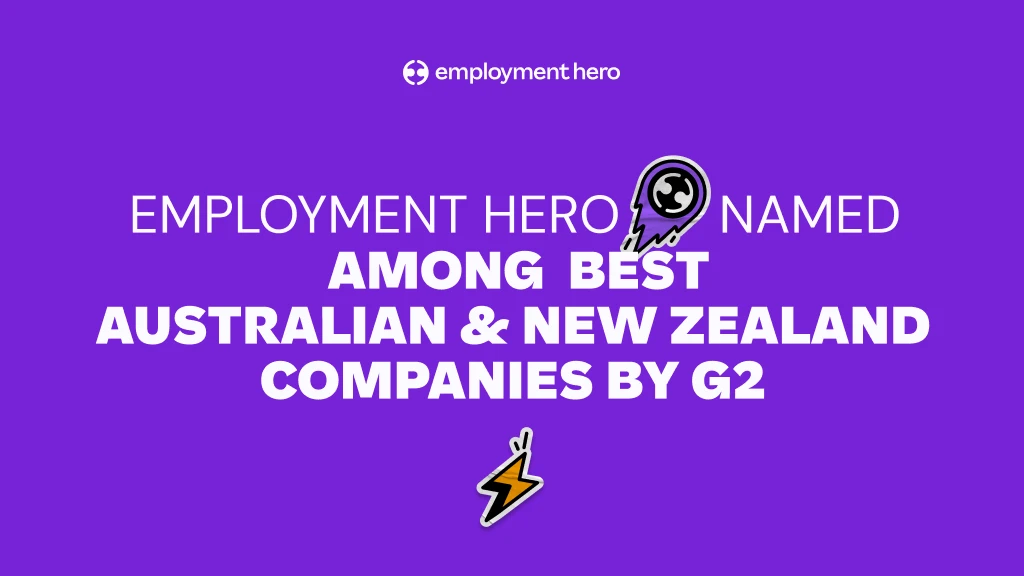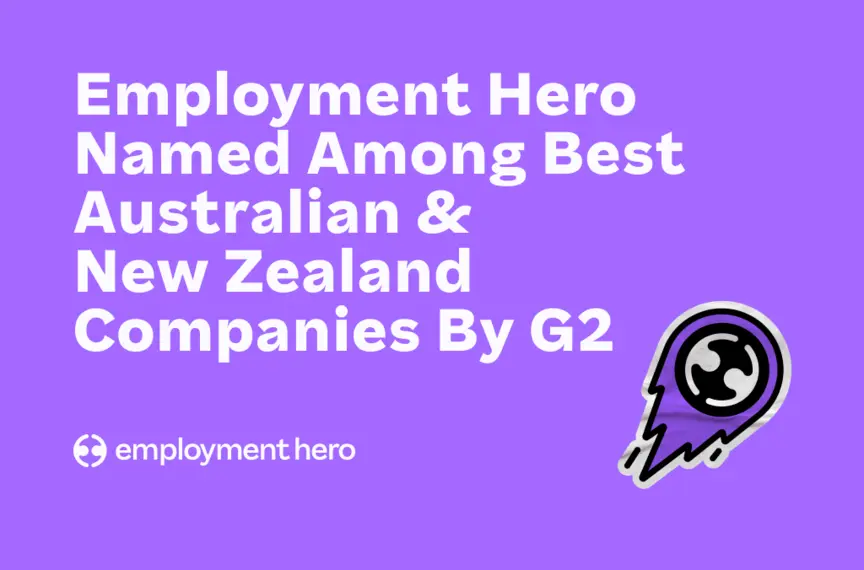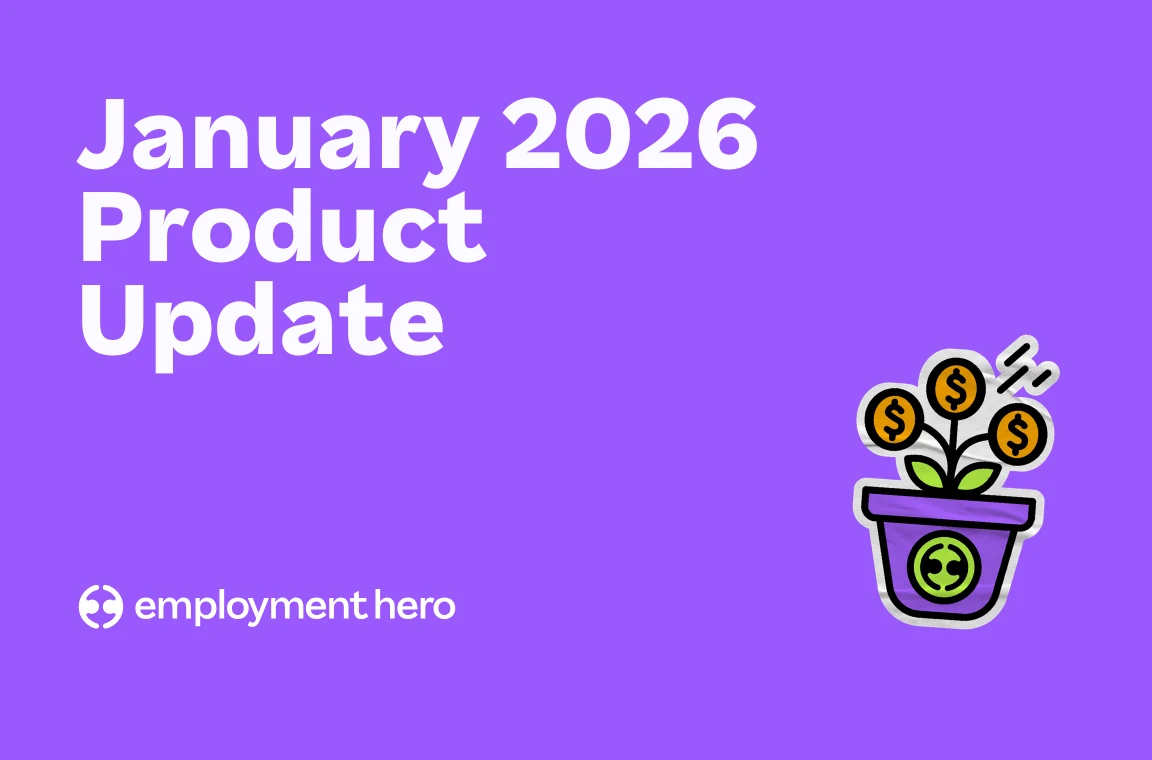How can SMEs retain Kiwi employees beyond salary?
When it comes to job satisfaction, salary is only one piece of the puzzle. So, what truly matters to Kiwi workers beyond their wages?

Contents
When it comes to job satisfaction, salary is only one piece of the puzzle. In New Zealand’s evolving workplace, employees are looking for much more than just a paycheck. So, what truly matters to Kiwi workers beyond their wages? From flexible work arrangements to a strong sense of purpose, a variety of factors now play a critical role in attracting and retaining top talent. We’ll dive into what Kiwi employees are seeking in their roles, and how you can invest in your team members without running your pockets dry.
Hold on, times are tough – why think about employee benefits now?
The clocks may be changing but 2024 shows little sign of change otherwise, with an ongoing struggling economy making the day-to-day harder than ever for business owners. Budgets are tight and while there’s hope for some relief come summer, it’s going to be a little while before Kiwi businesses can start to phase from ‘survive’ to ‘thrive’.
With that in mind, it can seem an odd time to be examining employee benefits and compensation. Aren’t there more important topics? There’s a method to it though – retention during tough economic times becomes more important than ever.
Did you know that it costs on average $6,429 to advertise a role in New Zealand? Should you lose an employee, you won’t just have to pay out any existing entitlements, you’ll also have to fund any cover while you find a replacement, and then factor in the cost of bringing in a new employee onboard. It can all add up – and that’s not even including the time spent on interviewing, training and onboarding admin.
In tough times, it pays to ensure that none of your existing employees are a flight risk, and that they’ll stick with you during this period. It’s an important way to ensure your budget doesn’t get an unexpected dip in the numbers and that your business benefits from consistency.
Salary is number one, but that doesn’t mean it’s everything
In our Talent Insights report, a salary increase was the top incentive that employees named as a reason to stay in their existing role. It makes sense – after all, everyone is doing it tough right now. However, we know that for employers, limited coffers mean that a salary increase can be a big, and at times impossible, step.
If you’re curious, you can of course benchmark your current salaries – we happen to have a free online tool to do just that. You might find that you’re offering a competitive rate anyway, which will lend you confidence should your team be pressing for a raise.
Even if your salary isn’t leading in the market, increasing pay packets across your business doesn’t have to be the only solution. We’ve got some ideas to get you started.
What employees want from their employer
In our recent Wellness at Work survey, employees named the following benefits and company investments as reasons to stay with an employer.
Remote and flexible work options (19%)
As a remote-first business at Employment Hero, we’ve certainly seen the benefit of remote work. Our team is based in locations all over the world, but we’ve still been able to hit our goals as one, and our workplace productivity has benefitted as a result.
The stats for offering remote or hybrid working arrangements also speak for themselves – 57% of hybrid employees in New Zealand said their overall work-life balance was above average, along with 53% of remote employees. Those fully onsite came in lower at 50%.
We know that by its nature, remote work isn’t going to suit every business. For example, a bartender can’t serve drinks from a home office, just like how a farm manager can’t check on their crops via Zoom call. Some employers may also prefer to see their team in the office – including our current Prime Minister.
However, there are a variety of different flexible work options that employers can offer their employees that doesn’t mean offering work-from-home full-time. It could be as simple as enabling employees to adjust their working hours for outside commitments, such as childcare, volunteering or appointments.
If you run a business in multiple locations, it could also involve being flexible around which base the employee works at on certain days. There’s also options such as job sharing and condensed work hours.
As the top benefit that employees are clamouring for, it could go a long way towards retaining your team. Plus, research shows that workers with flexibility are the most productive. Almost half of ‘super achievers’ indicate that they have a lot of flexibility in their role.
Discounts on everyday essentials like healthcare, fuel, utilities and groceries (15%)
The weekly shop has gotten increasingly wearisome on the wallets for everyone over the last year. Don’t get us started on the prices at the pump either. So, with that in mind, it was unsurprising that employees named discounts on everyday essentials as their second most important perk from an employer. For employers, this can be a challenging benefit to bring in. However, it doesn’t have to be impossible.
It can help to search around and check out what deals are available to you. The economy is affecting other businesses too, so see if you can secure some deals for your team that benefits both sides of the agreement. It’s fairly unlikely that you’ll get a supermarket giant to discount their shelves for your team but local stores and family-run businesses might be interested in a reciprocal deal.
A yearly allowance towards those essentials was also named in our survey, favoured by 12% of those polled. Like salary, this would take a little more out of your budget but if it’s possible for your business, it could be worth considering.
Great learning and career development opportunities (14%)
Employees aren’t just content with clocking in for the day and going through a routine list of tasks. Instead, they’re interested in opportunities to learn and grow their career through their role.
This is a great thing for employers – not only could their new skills and knowledge prove useful for your business, but it shows they’re prepared to really make an impact in your organisation. It’s also been proven that for businesses, enabling innovation and development is key to getting ahead, which could prove crucial during an economic crunch.
Help your employees help you with some new learning and career development opportunities. One cost-effective method is to bring in a learning management system (LMS) like the one offered by Employment Hero. There’s hundreds of courses on there that your team can choose from, from practical skills to complex technical training, and they can take part in self-directed learning when they have spare time. In one package, you’ve given your employees what they’re looking for and the opportunity to learn.

A great reward and recognition program (12%)
Many employees want to feel more valued at work, in the form of a reward and recognition program. It’s also been proven that employers who actively recognise and reward their team are more likely to see an uplift in levels of accountability, responsibility and leadership initiatives across the board.
A reward and recognition program doesn’t have to be costly or challenging – instead, it can be treated as a cultural change from the top down. For example, creating a working environment where people are celebrated for their work, thank-yous and compliments are a regular occurrence and no good deed goes unrecognised.
HR software like Employment Hero can support this. Our Company Feed feature allows everyone in a business to share shoutouts in an online noticeboard. There’s also the opportunity for employers to add monetary values of their choice for examples of exceptional performance.
Mental health services (6%)
A particularly alarming statistic in our Wellness at Work report was the fact that 61% of Kiwis said they felt burnt out because of work in the last three months. Likewise, 83% of Kiwis are experiencing stress in the workplace at least a few times a month or more.
An employee who is struggling with their mental health won’t be able to bring their full self to work, could find their productivity affected, be at risk of having to take leave – or may even have to leave your business altogether.
We know you’re stretched for time, and employers are already dealing with their own strained mental health in New Zealand. However, it’s becoming more common for employers to offer mental health services in the form of an employee assistance program (EAP). An EAP offers confidential counselling by an external party, providing the additional support that employees are looking for.
Keep your team engaged and on board with Employment Hero
When your business is under pressure, it needs a strong team to man the fort. Retain and support your employees to give your business the best chance to weather the storm. Factoring in some of the benefits we’ve named above has the potential to increase employee satisfaction and reduce employee turnover, without costing you money you don’t have.
Employment Hero’s HR and payroll software can also support you in engaging and motivating employees, in one easy-to-use package. Automate time-consuming admin, recognise your team and manage employment in a single online space.
It’s an investment worth making – 85% of Kiwi business leaders agree that Employment Hero makes managing employment easier. Businesses using our software have also experienced a 338% return on investment by the end of their first three years, making it an essential partner for navigating the challenges of the New Zealand economy.
Find out more about Employment Hero and speak to one of our team.
Related Resources
-
 Read more: Employment Hero Named Among Best Australian & New Zealand Companies by G2
Read more: Employment Hero Named Among Best Australian & New Zealand Companies by G2Employment Hero Named Among Best Australian & New Zealand Companies by G2
Ranked #6 on G2’s 2026 Best Software Awards, officially a Top 10 software company in ANZ
-
 Read more: Employment Hero Named Among Best Australian & New Zealand Companies By G2
Read more: Employment Hero Named Among Best Australian & New Zealand Companies By G2Employment Hero Named Among Best Australian & New Zealand Companies By G2
Employment Hero has been ranked #6 on G2’s 2026 list of the Best Australian and New Zealand Companies.
-
 Read more: Product Update: January 2026
Read more: Product Update: January 2026Product Update: January 2026
Welcome to the January 2026 product update from the Employment Hero team. We’ve got lots to share around Custom Forms,…























